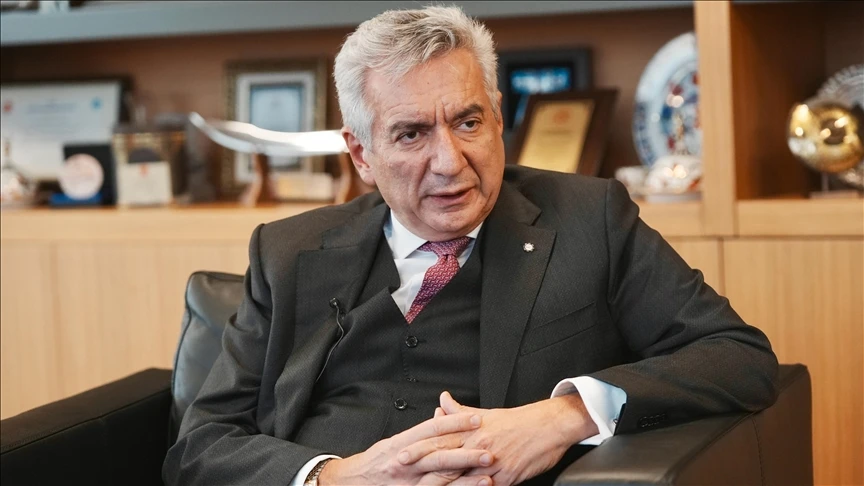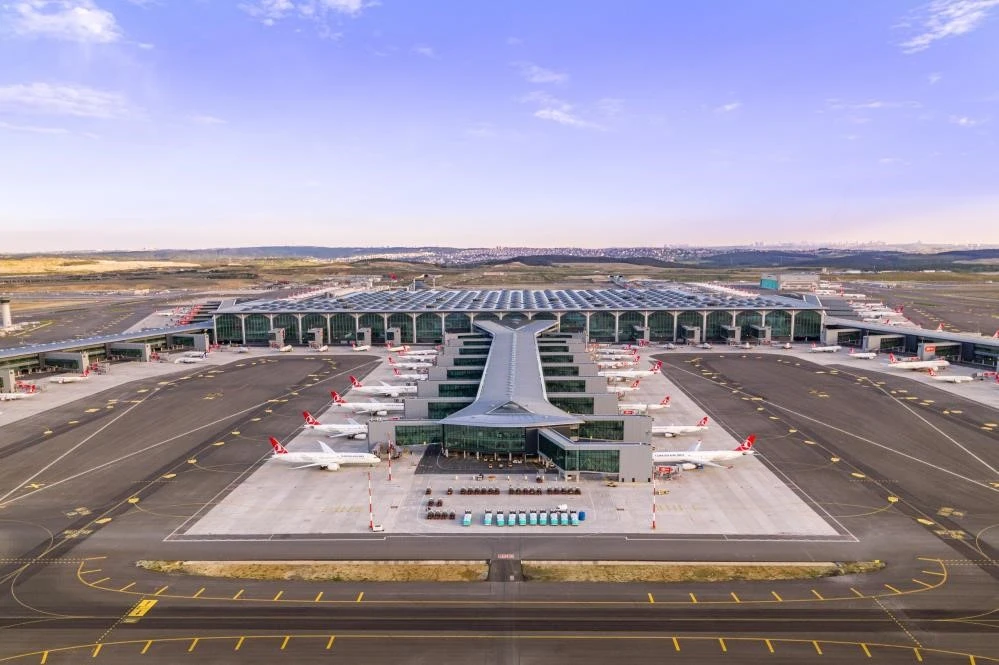Threat to opportunity: Least-affected Turkish businesses eye gains from Trump tariffs
 A container ship docked at Gemlik Port in Bursa, Türkiye, on Sep. 17, 2024. (Adobe Stock Photo)
A container ship docked at Gemlik Port in Bursa, Türkiye, on Sep. 17, 2024. (Adobe Stock Photo)
The Trump tariffs announced on April 2 pose a threat to countries by fueling protectionist trade practices, while recent shifts in global trade may create new opportunities for Türkiye’s competitiveness, according to Turkish business leaders.
U.S. President Donald Trump’s reciprocal tariffs—ranging from 10% to 50%—on over 180 countries have strained global trade relations, particularly between China and the U.S., amid growing fears of a global recession.
Some countries, such as Türkiye, the U.K., Brazil, Australia, the United Arab Emirates, New Zealand, Egypt, and Saudi Arabia, were each subjected to 10% reciprocal tariffs.
Sekib Avdagic, president of the Istanbul Chamber of Commerce, said that the global trade environment is reverting to protectionist tendencies and steep tariffs, especially after the U.S. began using tariffs as a tool in negotiations.

“Although Türkiye was not listed among countries facing heavy tariffs, it was included among the 11 nations subject to a basic 10% tariff,” Avdagic said.
“To fully assess the impact on the 185 trading partners of the U.S., we must closely follow the negotiations between these countries and the U.S., as well as any retaliatory measures, especially from China,” he added.
Avdagic emphasized that the U.S. was Türkiye’s second-largest export market last year, with $16.4 billion in goods and services exported, adding that this figure could rise further given the size of the American market, which totals 340 million people.
“The Turkish business sector must analyze Trump’s tariffs immediately and craft product and competition strategies to turn this challenge into a strategic opportunity,” he said.
Türkiye could attract investment from EU, Asia-Pacific
Avdagic also noted that European and Asia-Pacific companies may consider shifting investments to Türkiye due to rising tariffs elsewhere, while U.S. firms may also invest in Türkiye to benefit from lower tariff rates. This could lead to increased direct investment from both Europe and China in local production.
“Türkiye can seize this moment if it formulates a strategic plan to develop export sectors and explore new markets,” he said. “Still, we must not forget the U.S. decision in 2018 to double tariffs on Turkish steel and aluminum—caution is advised, even as we remain optimistic.”
Avdagic further warned that the ongoing trade wars could have broader political consequences for all countries involved.
“The 10% U.S. reciprocal tariff could allow Türkiye to expand its regional influence, and the recent resumption of the Türkiye-E.U. High-Level Economic Dialogue after a six-year pause could place Türkiye in a more effective and influential position within the global economic and political system,” he said.
‘Requires entirely new planning’
Erdal Bahcivan, chairman of the Istanbul Chamber of Industry, stated that Trump’s tariffs signal a significant change in global political and economic dynamics.
“These tariffs are the clearest sign yet that we are moving away from globalization and toward protectionism,” Bahcivan said. “The process is unpredictable, rapid, and jarring.”

He called for a strategic approach, urging Turkish stakeholders to prepare for a fundamentally altered global trade landscape.
“We must view these developments with a long-term perspective and adapt to the new trade conditions. The old models of global competition no longer apply—this requires entirely new planning,” he said.
Bahcivan added that the 10% reciprocal tariffs imposed on Türkiye may ultimately benefit the country by enhancing its competitive edge in investment and foreign trade—especially when compared with the 25% tariffs imposed on major economies such as China, Japan, the E.U., and South Korea.



